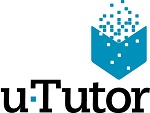Project Social Seducement (Erasmus+ KA2 Strategic Partnerships)

The Social Seducement project aims to develop the key competences and skills of adults with disadvantages, and in particular those being unemployed, to help them start up a collaborative enterprise. Universidad Internacional de La Rioja (UNIR) leads the design of the game and the pedagogical model.










